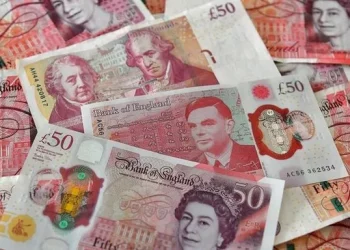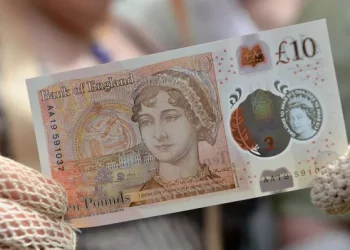In the fast-paced world of foreign exchange (forex) trading, understanding currency conversions and exchange rates is critical for individuals and businesses involved in international transactions. For those specifically interested in converting Canadian dollars (CAD) to British pounds (GBP), there are several factors to consider. This article will explore how much 3000 CAD is in GBP, the factors that affect currency exchange rates, and how to approach currency conversions in a professional and informed manner.
Whether you are an investor, traveler, or business owner, having a firm grasp of exchange rates can make a significant impact on your financial decisions.
1. Introduction to Currency Exchange
Currency exchange refers to the process of converting one currency into another. This is essential for global trade, international investments, tourism, and even when transferring money between countries. In forex markets, currencies are traded in pairs, and their value fluctuates based on several economic factors.
For example, the Canadian dollar (CAD) and the British pound (GBP) are traded as a currency pair, often denoted as CAD/GBP. The value of this pair indicates how much one unit of Canadian dollar is worth in terms of British pounds. If the exchange rate for CAD/GBP is 0.60, it means 1 CAD is equal to 0.60 GBP.
Understanding exchange rates and how they fluctuate is crucial for anyone who needs to exchange currencies, whether for personal use or professional financial transactions.
2. Calculating the Conversion: How Much Is 3000 CAD to GBP?
To calculate how much 3000 CAD is in GBP, you need the current exchange rate for CAD/GBP. As exchange rates are subject to constant fluctuations due to a variety of factors, the value of 3000 CAD will vary depending on the rate at the time of conversion.
Example Conversion
Let’s assume the current exchange rate for CAD/GBP is 0.60. To convert 3000 CAD to GBP, you simply multiply the amount in CAD by the exchange rate:
3000CAD×0.60=1800GBP
Thus, 3000 CAD would equal 1800 GBP at this exchange rate. However, keep in mind that exchange rates can change rapidly, meaning the amount of GBP you would receive for 3000 CAD could be higher or lower depending on market conditions.
In the case of a different exchange rate, say 0.55, the conversion would be:
3000CAD×0.55=1650GBP
This demonstrates how fluctuations in the exchange rate can impact the final conversion.
3. Understanding Factors That Affect Exchange Rates
The forex market is highly dynamic, and exchange rates fluctuate based on various global economic factors. Below are some key factors that influence the value of currencies, including the CAD and GBP:
Interest Rates
Central banks, such as the Bank of Canada (BoC) and the Bank of England (BoE), control interest rates, which directly affect currency values. When interest rates rise in a country, it can attract foreign capital investment, which in turn increases demand for that country’s currency. Conversely, when interest rates fall, the currency can lose value.
Economic Data and Indicators
Economic indicators such as GDP growth, inflation rates, employment figures, and trade balances provide insight into a country’s economic health. Strong economic data can boost investor confidence in a country’s currency, causing its value to appreciate against other currencies.
For example, if Canada reports strong economic growth, the CAD might strengthen against the GBP. On the other hand, if the UK economy is struggling, the GBP might weaken against the CAD.
Political Stability
Political stability or instability can also play a significant role in the value of a currency. Elections, policy changes, geopolitical tensions, or events like Brexit can create uncertainty, leading to fluctuations in exchange rates.
For example, the value of the GBP can drop if there is political instability in the UK, or if there are concerns about economic policies.
Market Sentiment and Speculation
Traders in the forex market react to news, events, and trends, which can drive short-term fluctuations in exchange rates. Market sentiment—whether traders are optimistic or pessimistic about the future of a currency—can influence buying and selling activity, leading to changes in currency values.
Commodity Prices
Canada is a major producer of commodities, especially oil. As a result, the CAD is often closely correlated with commodity prices. When oil prices rise, the Canadian economy tends to perform well, strengthening the CAD.
Conversely, fluctuations in global commodity prices can cause the CAD to weaken, impacting the CAD/GBP exchange rate.
4. The Role of Forex Brokers and Currency Exchange Platforms
When converting currencies, individuals and businesses can do so through various means, including banks, forex brokers, and online currency exchange platforms. Forex brokers offer trading services to retail and institutional traders, while currency exchange platforms provide an easy way for individuals to exchange one currency for another.
Banks
Traditional banks are one of the most common places to exchange currency. However, banks typically offer less favorable exchange rates compared to specialized forex brokers or online platforms. They may also charge higher fees for currency conversions.
Forex Brokers
Forex brokers are intermediaries that facilitate currency trading for individuals and institutions. They offer access to the forex market, where currencies are bought and sold. Forex brokers usually provide real-time exchange rates and may offer competitive spreads (the difference between the bid and ask price).
Traders can use brokers to make currency conversions at better rates, especially if they are engaging in frequent or large-scale trades.
Currency Exchange Platforms
Currency exchange platforms, such as online money transfer services, offer an easy way for individuals to convert CAD to GBP. Many of these platforms provide competitive rates and lower fees compared to banks. Some popular platforms include Wise (formerly TransferWise), Revolut, and PayPal.
When using a currency exchange platform, it’s important to compare rates across different platforms to ensure you are getting the best deal.
5. Factors to Consider When Converting CAD to GBP
When converting 3000 CAD to GBP, there are several factors to take into account to ensure you are getting the best value for your money.
Conversion Fees and Charges
Whether you are exchanging currency at a bank, broker, or exchange platform, conversion fees can impact the final amount you receive. Fees can be fixed or variable and can vary widely depending on where you exchange the currency.
For example, a bank may charge a flat fee for converting CAD to GBP, or it may mark up the exchange rate, effectively charging you more for the conversion. Forex brokers and online platforms also charge fees, which can include transaction costs, withdrawal fees, and commissions.
Always factor in the fees before deciding on the best method of conversion to ensure you are not losing money due to excessive charges.
Exchange Rate Markups
When exchanging currency, you might encounter what’s known as a markup. This occurs when the institution you’re dealing with offers you an exchange rate that is less favorable than the market rate. This is particularly common with banks and traditional exchange services.
Forex brokers, on the other hand, typically offer more competitive exchange rates and lower markups. Some brokers even offer “no spread” accounts, where there’s no markup on the exchange rate, making it ideal for active traders.
Timing the Exchange
Timing is crucial when exchanging currencies. As the forex market is highly volatile, exchange rates can change rapidly, impacting the amount of GBP you’ll receive for your CAD.
If you are not in a rush, it can be beneficial to wait for a more favorable exchange rate. Conversely, if you need to convert your CAD to GBP immediately, it’s important to keep an eye on real-time exchange rates to ensure you’re not losing money.
6. Practical Examples and Use Cases for CAD to GBP Conversion
There are many scenarios where an individual or business might need to convert CAD to GBP. Here are a few common use cases:
International Travel
If you’re planning a trip to the UK, converting your CAD to GBP is necessary for paying for goods and services. Knowing how much 3000 CAD will get you in GBP can help you budget for your trip and avoid overspending.
International Business Transactions
For businesses involved in importing or exporting goods between Canada and the UK, understanding the CAD/GBP exchange rate is crucial for managing profit margins and pricing products in foreign markets.
Forex Trading
Forex traders often engage in currency conversion as part of their trading strategy. If you are trading CAD/GBP, understanding how exchange rate fluctuations can impact your positions is essential for making informed decisions and minimizing risk.
Remittances and Money Transfers
If you are sending money from Canada to the UK, understanding the exchange rate will help ensure that your recipient receives the correct amount of GBP. Online money transfer services like Wise and PayPal offer quick and convenient ways to transfer funds internationally.
Conclusion
In conclusion, the process of converting 3000 CAD to GBP is straightforward once you understand the factors influencing exchange rates, such as interest rates, economic data, and market sentiment. However, it’s important to be mindful of the fees and charges involved in currency exchange, as they can affect the final amount you receive.
By keeping an eye on the current exchange rate, using reliable currency exchange platforms, and considering the best times to make conversions, you can make the most of your currency exchange and optimize your financial decisions. Whether for personal or business purposes, understanding currency exchange is an essential skill for navigating the global economy.
Related Topics:

























